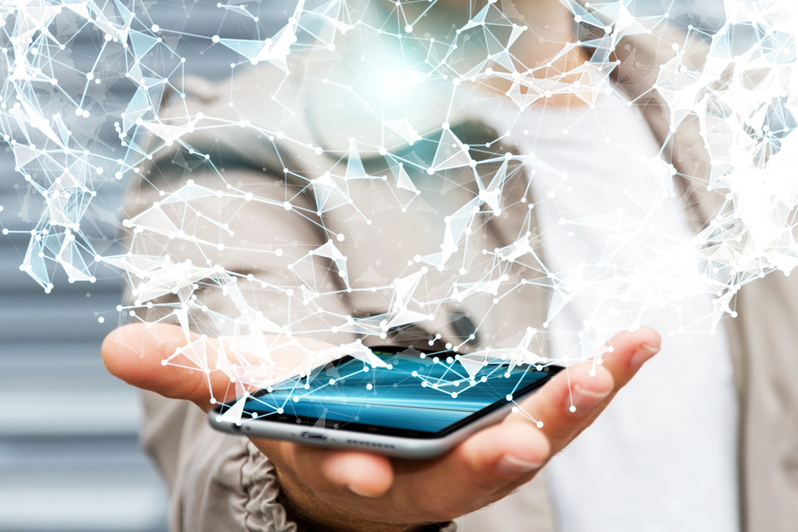

In May 2015, detectives in Baton Rouge were able to find the body of Taherah Ghassemi, who had been missing for a month. Detectives would eventually get a big break, which led them to discover Ghassemi’s body buried in a rural area about an hour’s drive from Baton Rouge.
Shortly afterward, police arrested the victim’s ex-husband and three men accused of collecting $10,000 from him in exchange for abducting, killing and burying his ex-wife. Common technology made it possible for the police to locate Taherah Ghassemi. Detectives collected cell phone location records using data obtained from a phone used by one of the men they arrested. Detectives used those records to trace the location of the phone from Taherah Ghassemi’s residence to the place where her body was found.
As this case demonstrates, the data embedded in cell phones are playing an increasingly pivotal role in solving crimes. At the same time, the use of smartphone data in criminal cases is controversial and has raised privacy concerns. When it comes to using smart devices to gain convictions in court, the legal issues and privacy concerns are still evolving, and some smartphone manufacturers resist turning over this kind of data to law enforcement. If you get arrested based on evidence from your cell phone data, you need to quickly hire an experienced criminal defense and criminal appeals attorney.
How Can Smart Devices Be Used as Evidence in Court?
Peter L. Scharf, a policing expert and professor at the Louisiana State University’s Institute for Public Health and Justice, told Louisiana newspaper, The Advocate, that cellphone data had been a highly useful tool for law enforcement.
“Cellphones can be the mother lode for law enforcement … The evidence can be used both to point to possible criminal activity and also to exclude subjects from an investigation, which happens most of the time.”
In the case of Taherah Ghassemi’s disappearance, it was a phone call made to her ex-husband several hours after she was last heard from that led investigators to the caller, Tyler Lee Ashpaugh. Location data collected from Ashpaugh’s phone helped lead investigators to the remote area where her body was found.
This investigative field has become so widespread that it’s now referred to as mobile computing forensics, and it’s particularly useful in providing information on a user’s whereabouts. Applications like Google Maps and social media sites like Facebook require users to provide location information. Users may be directed to find everything from nearby restaurants to gas stations and movie theaters. That data is stored on your phone, a cloud, or another server. As you use the phone, it logs location notes, while apps you’ve downloaded can be sending location data to your server.
In the Ghassemi case, police had to get a search warrant for the phone; but, that’s not always as easy as it sounds.
Are There Privacy Concerns Over Police Use of Smartphones?
The ability to use smartphone data in criminal investigations has already been challenged. In a 2015 case from Bentonville, Arkansas, detectives began to investigate a man after he reported finding a body in a hot tub at his home. The homeowner, James Andrew Bates, told detectives he’d found the body of Victor Collins dead that morning, and that Bates himself had gone to bed around 1 a.m. while Collins and another stayed up drinking. Detectives wanted to investigate Bates further, so they targeted his Echo device, which connects to the voice-controlled intelligent personal assistant service Alexa. They subpoenaed Amazon for that information.
Amazon refused that request, citing concerns over their customers’ First Amendment protections. Amazon ultimately did release the information, but only after Bates, as their customer, agreed to allow the information to be handed over to police.
Questions over an individual’s right to privacy didn’t get solved then and there. By purchasing these data-collecting devices, do we as consumers forfeit a reasonable right to privacy from the manufacturers of the devices? What about the government when it wants that information?
Amazon has continued to resist similar subpoenas, arguing that releasing a consumers’ private data records to governing bodies violates consumer privacy rights. The U.S. Supreme Court ultimately weighed in and ruled that cellphones are similar to your home, and police officers generally need warrants to search them.
Experienced Criminal Defense on Your Side in Louisiana
If you’ve been arrested on criminal charges and the police want to search the information on your cellphone or any other electric device, you need to get an experienced criminal defense attorney on your side who can protect your rights as the case proceeds. In Louisiana, a top source for criminal defense attorneys is The John D. & Eric G. Johnson Law Firm. We have more than 25 years of experience representing ordinary citizens just like you and want to help you get your life back on the right track. It’s our mission to give you the most personalized experience possible and help you have your voice heard.
Attorney Eric Johnson is respected throughout Louisiana and is known for providing solid representation in criminal defense matters. To schedule a free consultation regarding your case, call our office at 318-377-1555 or contact us online today. We’re here to represent you!
